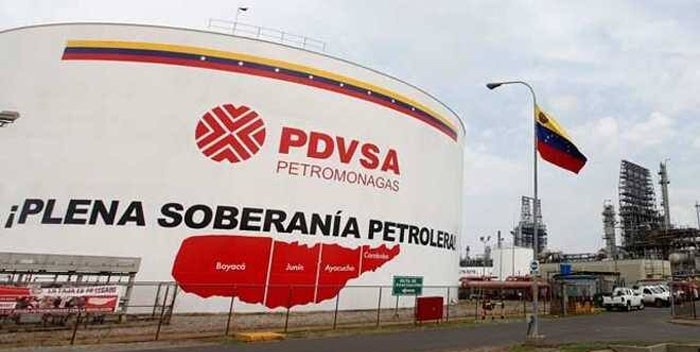PUNTO FIJO, Venezuela, (Reuters) – Venezuela’s state-run oil company PDVSA plans to discharge in the coming days a cargo of 1.73 million barrels of Russian Urals crude, which it will partially use for domestic refining, according to a source and a shipping document seen by Reuters yesterday.
Venezuela last month resumed imports of Russia-origin fuel by receiving a diesel cargo, a sign of renewed cooperation between the two countries, which had faded in recent years, as Washington readies a reimposition of oil sanctions on the South American country in April.
The Djibouti-flagged supertanker Ligera, which arrived in Venezuelan waters earlier this week, loaded the Russian crude via ship-to-ship transfers near Greece, according to the LSEG data and the document.
The vessel, owned by Seychelles-based Trident Liberty, is now bound to discharge in Amuay, another ship-to-ship hub off Venezuela’s Western coast, the document showed.
Many oil companies and traders are rushing to arrange imports of Venezuelan oil and exports to Venezuela before a temporary license extended by the U.S. Treasury Department last year expires in April.
Russian companies traded Venezuelan crude and supplied PDVSA with fuel between 2019 and 2020 in the aftermath of U.S. oil sanctions on Venezuela, but specific U.S. measures against the trade forced its suspension.
PDVSA had not received Russia-origin cargoes since 2020, according to vessel monitoring data.
A portion of the Urals cargo will be refined at PDVSA’s 310,000-barrel-per-day Cardon refinery as another refinery, the 146,000-bpd El Palito, is halted during planning maintenance, a source close to operations said.
It is unclear if another portion of the Russian crude will be use as diluent or re-exported to Cuba, which is struggling with a lack of fuel.
PDVSA did not immediately reply to a request for comment. Trident United could not be reached for comment.
PDVSA last year imported Iranian crude for refining at its domestic system, and it also received Iranian condensate to dilute its extra heavy oil output as part of an oil swap for Venezuelan heavy crude.










